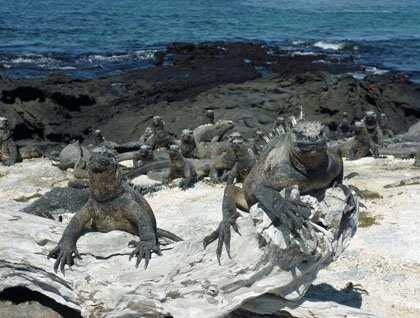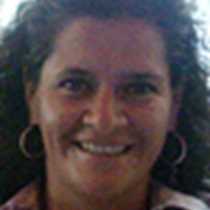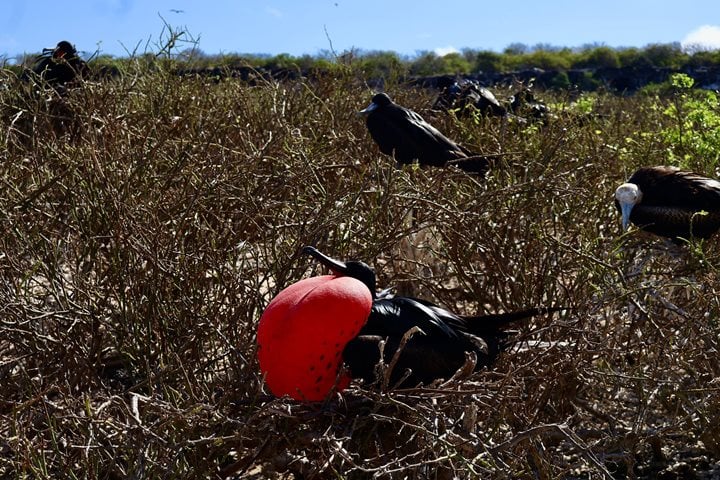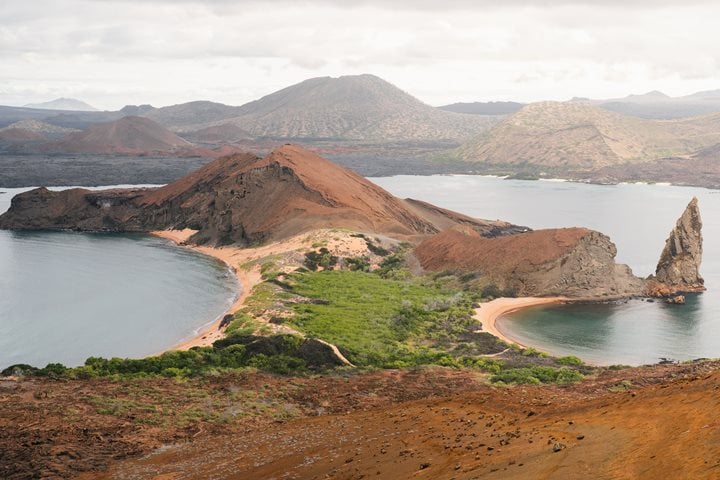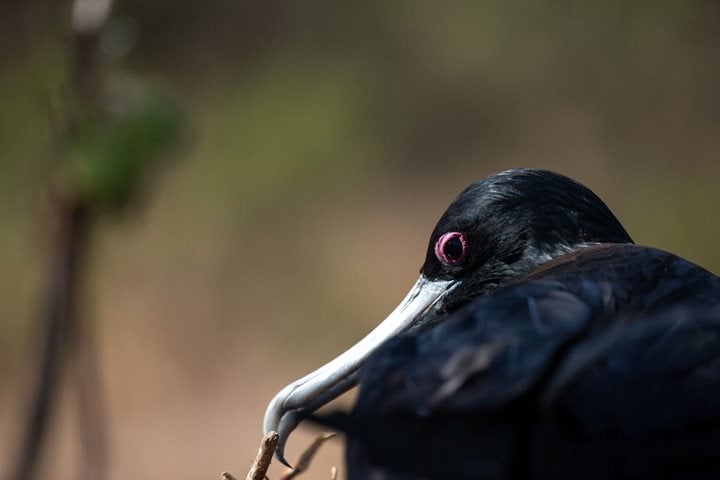As we approach this area today we found ourselves surrounded by huge pods of common dolphins, at least 300 hundred of them swimming and jumping out of the water—what a neat surprise and what a wonderful way to start our day!
The westernmost islands of this archipelago, Fernandina and Isabela are the youngest islands of them all. The scenery of the shield-shaped volcanoes and the calm waters of the ocean made our early wake-up very enjoyable. This area of the archipelago gets the direct influence of the cold undercurrent of Crownwell, which is very rich in nutrients and responsible for the marine wildlife found in the Galápagos.
Fernandina is around 150,000 years old, which in geological time once again it is considered a baby. Punta Espinoza, which we visited in the morning, is an island that takes us back to very beginning of time, being the youngest of the chain. During the walk we talked about the very early processes of life taking place, the formation of soil, the simplicity of the ecosystem together and its fragility.
In the afternoon, we explored Punta Vicente Roca along the coastline of Isabela Island and saw the unique species that inhabit this area: Galápagos penguins (the smallest of the globe), flightless cormorants, marine iguanas, and Pacific green sea turtles. All the wildlife made our snorkeling very enjoyable. Having the opportunity to swim the sea turtles and the tropical fish in this area made this experience the best so far of our week aboard the National Geographic Endeavour.
A Zodiac ride later in the afternoon gave us the chance to see the geological features of Isabela, which include some impressive formations and beautiful colors. After the cruise we got ready to see again the same creatures, but this time underwater, and the snorkeling was amazing.
We returned to the ship, and as we crossed the equator at sunset we had the chance to reflect on the overwhelming power of nature that has surrounded us all week long making us feel part of this precious planet that well deserves to be conserved!

